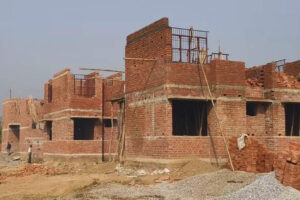Daily News Analysis – 12 June 2025
Rise in Violent Crimes by Juveniles
Juvenile delinquency is increasingly shifting from petty offenses to heinous violent crimes in India, with the National Crime Records Bureau reporting that nearly 50% of juvenile crimes in 2022 were violent in nature. While total juvenile cases fell from 37,402 in 2017 to 33,261 in 2022, the severity has grown, particularly in states like Madhya Pradesh, Maharashtra, and Rajasthan. Contributing factors include digital exposure to violent subcultures, poor mental health infrastructure, substance abuse, familial neglect, and socio-economic marginalization. While the Juvenile Justice Act, 2015, and schemes like ICPS aim to rehabilitate, challenges persist due to under-resourced Juvenile Justice Boards, lack of gender-disaggregated data, and the stigmatization of offenders. The report underscores the urgency for psychosocial support in schools, community-based interventions, and a rehabilitative rather than punitive justice approach.
Ninth Anniversary of Pradhan Mantri Ujjwala Yojana (PMUY)
Launched in 2016, the PMUY marked its 9th anniversary with over 10.33 crore active beneficiaries and a total of 32.94 crore LPG users across India. Initially targeting BPL households, the scheme has expanded to include migrants and marginalized groups. It has reduced indoor air pollution and empowered women by freeing them from traditional fuel dependency. However, affordability of LPG refills, lack of infrastructure in remote areas, and continued reliance on firewood remain pressing challenges. To realize its full potential, policy experts call for enhanced subsidies, last-mile connectivity, and community sensitization to ensure sustained behavioral change.
ILO Data: Social Protection Coverage in India Rises to 64%
According to ILOSTAT 2025 data, India’s social protection coverage has surged from 19% to 64.3% in a decade, now ranking second globally. Over 94 crore Indians benefit from schemes like Ayushman Bharat, PM-SYM, PMJJBY, PDS, and MGNREGA. The database update reflects India’s digital governance capabilities and its push for inclusive welfare. While coverage has expanded, quality, awareness, and benefit adequacy remain critical dimensions for future reforms. Experts urge a move toward universal social security with a focus on the gig economy, aging population, and convergence of schemes for efficiency.
33% Reservation for Women in Legislatures
The Nari Shakti Vandan Adhiniyam (106th Constitutional Amendment) guarantees 33% reservation for women in the Lok Sabha and State Assemblies. While hailed as a landmark moment for gender justice, implementation is contingent on the 2027 Census and delimitation, sparking concerns over delay. The reservation includes SC/ST women and is set for 15 years, with possible extensions. Critics highlight the lack of sub-quotas for OBC women and risks of rotational seat allocation. While the law may reshape electoral dynamics in 2029, inclusive design and prompt action are essential to translate legislation into representation.
50 Years of Emergency: Lessons from India’s Constitutional Crisis
On 12 June 1975, the Allahabad High Court invalidated Indira Gandhi’s election, triggering a National Emergency declared on 25 June 1975. This dark phase lasted 21 months, witnessing the suspension of civil liberties, press censorship, mass detentions under MISA, and amendments that eroded checks and balances. The 44th Constitutional Amendment introduced safeguards like mandatory Cabinet advice for Emergency proclamation, periodic parliamentary review, and protection of Articles 20 and 21. Judicial verdicts like Minerva Mills reaffirmed the Basic Structure Doctrine. The Emergency anniversary underscores the need for vigilant constitutionalism, democratic accountability, and institutional resilience.
UNESCO Creative City of Gastronomy: Lucknow’s Awadhi Bid
Lucknow has submitted its nomination to the UNESCO Creative Cities Network under the gastronomy category for its Awadhi cuisine. If accepted, it will join Hyderabad in showcasing India’s culinary heritage on the global stage. The UNESCO network promotes sustainable urban development through creativity across seven domains, and Lucknow’s inclusion could boost tourism, cultural preservation, and local economies.
Shipki La: Reviving Himalayan Trade and Tourism
The Himachal Pradesh government has launched border tourism at Shipki La — a historic pass on the ancient Silk Route and proposed corridor for Kailash Mansarovar Yatra. Strategically located at the India-China border and home to the Sutlej River’s entry into India, it represents both geopolitical significance and cultural heritage. While tourism revival offers opportunities, it must be balanced with border sensitivity and environmental conservation.
Lokpal of India: New Motto and Renewed Focus
The full bench of Lokpal of India has adopted “Empower Citizens, Expose Corruption” as its new motto. The Lokpal, a statutory body under the 2013 Act, has jurisdiction over corruption complaints against public officials, including the Prime Minister. However, its performance has been hindered by institutional delays, limited public awareness, and lack of prosecutorial powers. Experts call for strengthening the Lokpal’s autonomy and integration with digital grievance redress platforms to revitalize its role in anti-corruption governance.
Malta’s Golden Passport Scheme Struck Down
The European Court of Justice ruled Malta’s Golden Passport scheme — offering citizenship in exchange for investment — to be illegal under EU law. Introduced in 2014, it raised concerns over national security, money laundering, and abuse of EU residency rights. This ruling may influence similar schemes in Cyprus and Bulgaria and raises questions about balancing economic policy with ethical immigration norms. For India, this reflects the importance of transparency in residency and visa regimes amid growing offshore asset scrutiny.
Hortoki-Sairang Railway Line Approved
The final stretch of the Bairabi–Sairang railway project in Mizoram has received clearance, enabling the first rail link to Aizawl. Covering 33.86 km, it traverses difficult terrain with 32 tunnels and 35 bridges. This project is part of the Centre’s Act East Policy, aiming to connect all Northeast capitals and boost regional integration. Infrastructure in the Northeast remains crucial for economic inclusion, strategic logistics, and cross-border trade, especially with ASEAN.
Monoclonal Antibody Symposium: India’s Biopharma Leap
The Translational Health Science and Technology Institute (THSTI) hosted a symposium to advance research in monoclonal antibodies (mAbs), vital for targeted therapies in cancer, viral infections, and autoimmune diseases. India’s mAb ecosystem is growing but still import-dependent. The conference emphasized cross-sector collaboration, indigenous production, and regulatory harmonization to make precision biologics accessible to Indian patients.
India at IALA: Strengthening Marine Navigation Safety
India participated in the 2nd IALA Council session in France as its Vice President. IALA became an Intergovernmental Organization in 2024 and plays a pivotal role in developing global standards for marine navigation and safety. India’s leadership in IALA reflects its expanding maritime profile and aligns with its SAGAR (Security and Growth for All in the Region) policy. Upgrading lighthouse systems, VTS protocols, and maritime skilling will be vital going forward.
Gangotri Waste Incinerator Sparks BESZ Concerns
Environmentalists have raised alarms over a solid waste incinerator project within the Bhagirathi Eco-Sensitive Zone (BESZ) in Gangotri. ESZs are protected buffer zones around wildlife sanctuaries and national parks, where development is regulated to protect fragile ecosystems. This incident reflects the classic conflict between infrastructure and ecology. The Supreme Court’s 2022 order mandates a minimum 1 km ESZ around all protected areas. Ensuring ecological justice while managing pilgrimage waste is a key policy dilemma.
India Joins Exercise Khaan Quest in Mongolia
The Indian Army is participating in Exercise Khaan Quest in Mongolia — a multinational peacekeeping training exercise under Chapter VII of the UN Charter. It began as a bilateral U.S.–Mongolia initiative in 2003 and evolved into a global forum. India’s participation underscores its commitment to global peacekeeping, interoperability with NATO and non-NATO allies, and strategic engagement in Central Asia.
Source link



